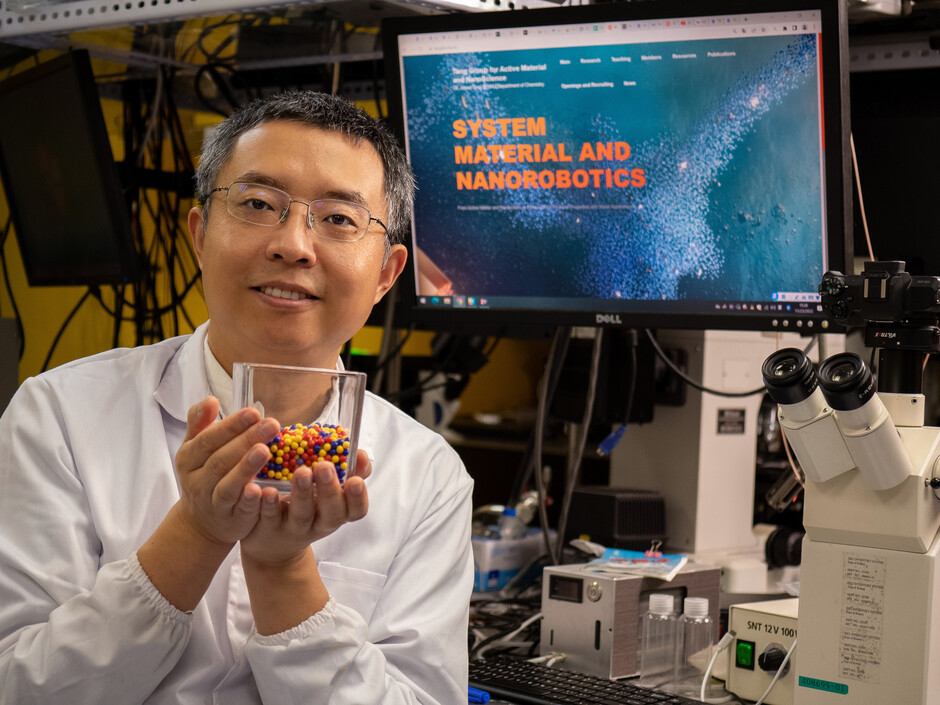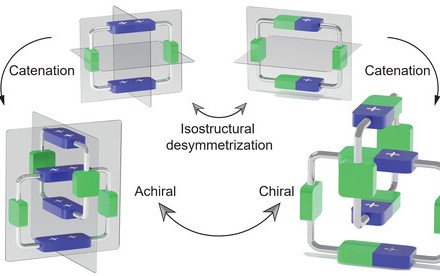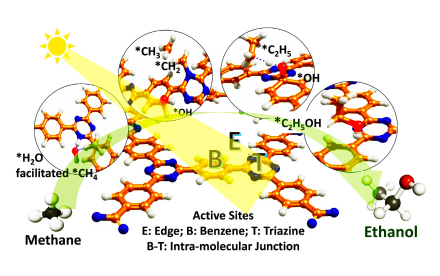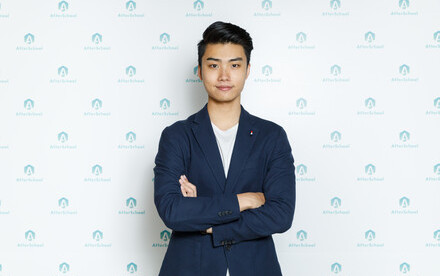08 Dec 2022
Dr Jinyao TANG awarded the Croucher Senior Research Fellowship 2022

Dr Jinyao TANG was awarded the Croucher Senior Research Fellowship 2022
'We are trying to create some novel materials that can mimic life -- able to metabolise, replicate, self-build and even reproduce themselves. We hope these nano robots can be tailor-made and assembled into advanced materials with unique properties, which can be applied widely in electronics, wearable device, and healthcare.'
-- by Dr Jinyao TANG, Croucher Senior Research Fellow 2022
Dr Jinyao TANG, Associate Professor at the Department of Chemistry, was selected as Senior Research Fellow 2022 by the Croucher Foundation for his excellent scientific research achievements.
Croucher Senior Research Fellowships are awarded to the very best Hong Kong scientists to release them from administrative duties and allow them to spend their time and energy on original research.
About Dr Tang’s research work
Can material be alive? Can next-generation material be intelligent? Dr Jinyao Tang of the Department of Chemistry will try to answer these questions. Over the last few years, Dr Tang’s group managed to make a tiny robot with a size comparable to blood cells, which can be manipulated and programmed remotely. The next question is how to make tiny nanorobots not only controllable but also able to ‘think’ by themselves. Recently, Dr Tang’s team developed a new nanorobot swarming system. By communicating chemically with each other, the nanoswarm shows collective intelligence and makes decisions similar to bee swarms. In the future, Dr Tang will focus on the emergence of intelligence in nanorobot communication networks and develop smart ‘live materials’ for biomedical applications.
Supported by the Croucher Foundation, Dr Tang’s research team will develop new synthetic and physical tools to understand how to integrate individual nanorobot into intelligent materials, where many unique properties that were previously only possible in the living system can be realised and exploited for new applications.
Dr Tang’s Biography
Dr Jinyao Tang received his bachelor’s degree in Chemical Physics from the University of Science and Technology of China in 2003 and then got his PhD degree in Chemistry from Columbia University in 2008. After his graduation, Dr Tang moved to California and did four years of postdoctoral research at the University of California Berkeley and Lawrence Berkeley Nationa lLaboratory with Professor Peidong Yang. In 2012, Dr Tang started his own lab in nanomaterials at the Department of Chemistry at as Assistant Professor and later promoted to tenured Associate Professor in 2018. Dr Tang’s research centres around the low dimensional materials for active matter/nanorobotics and system intelligent materials. He made many important contributions in the nanomotor and nanorobot fields, pioneering the field of optical guided nanorobotics with a series of nanorobot inventions that can be powered and controlled with light. Dr Tang’s research also extends to active matter systems for intelligent materials, where novel functions can be obtained in out-of-equilibrium materials.
Awards and Honours
Croucher Senior Research Fellow 2022
RGC Research Fellow 2021
Outstanding Young Research Award (HKU)2017
Early Career Award (HKRGC) 2005
About Croucher Senior Research Fellowships
The Croucher Senior Research Fellowships scheme was first introduced in 1997. It is awarded to local academics who have excelled in scientific research work as judged by leading international scientists invited to provide confidential reviews of candidates nominated in a competitive exercise. Funds are awarded to the universities of the fellowship recipients, enabling the university to recruit replacement teachers to take over the award winner’s duties for the period of the fellowship. This enables the awardees to devote more time and effort to research work.







